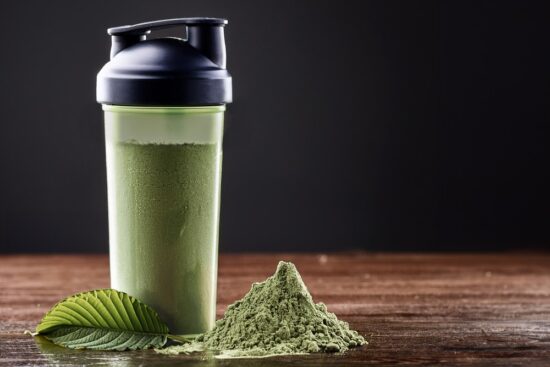
How to Mix Kratom into Liquids Like a Pro Updated September 2025 By: The Kratom Spot Team SUMMARY: Mixing kratom into liquids is one of the best ways to make it more enjoyable and easier to take. From citrus juices and smoothies to teas, protein shakes, or even chocolate milk, the right liquids and…
 September 30, 2025
September 30, 2025

Traveling with Kratom: What You Need to Know Updated September 2025 By: The Kratom Spot Team SUMMARY: Traveling with kratom in the United States is generally legal, but it’s crucial to understand local laws before hitting the road or boarding a flight. While TSA has no specific ban on kratom, several states and cities do,…
 September 29, 2025
September 29, 2025
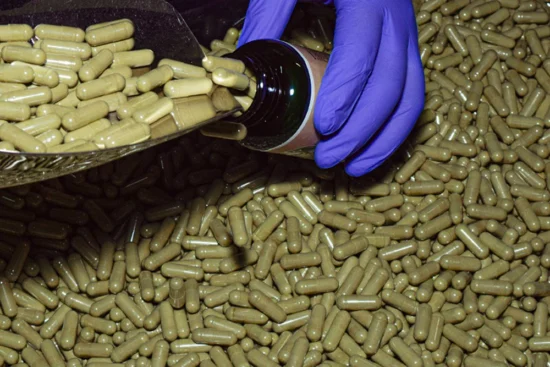
Buying Kratom in Bulk: What You Need to Know May 2025 By: The Kratom Spot Team SUMMARY: The blog discusses the benefits of buying kratom in bulk, like cost savings and having a consistent supply, while advising buyers to choose reputable vendors. Discover the importance of product quality, proper storage, and learn about potential legal…
 May 14, 2025
May 14, 2025
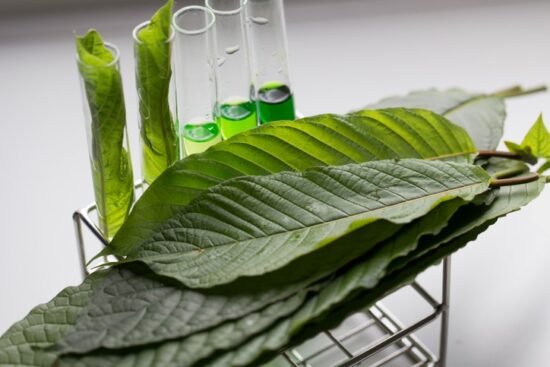
Understanding Kratom’s Primary Alkaloid, Mitragynine June 2025 By: The Kratom Spot Team What Is Mitragynine? Mitragynine is the most abundant active compound found in the leaves of Mitragyna speciosa, commonly known as kratom. It belongs to a family of plant-based compounds called alkaloids, which are known for their physiological effects on the human body. In…
 May 6, 2025
May 6, 2025

How Much Kratom Should I Take? A Guide to Kratom Dosing April 2025 By: The Kratom Spot Team SUMMARY: Finding the right kratom dosage is highly individualized and depends on factors like body type, wellness goals, strain, and consumption method. This guide explains dosage ranges, how capsules and powders differ, and provides tips to measure…
 April 30, 2025
April 30, 2025

How to Spot Fake or Low-Quality Kratom Updated September 2025 By: The Kratom Spot Team SUMMARY: Not all kratom on the market is pure or safe, so it’s important to learn how to spot fake or low-quality products. This guide explains the risks of using contaminated kratom, how to identify counterfeit or stale batches, and…
 April 21, 2025
April 21, 2025
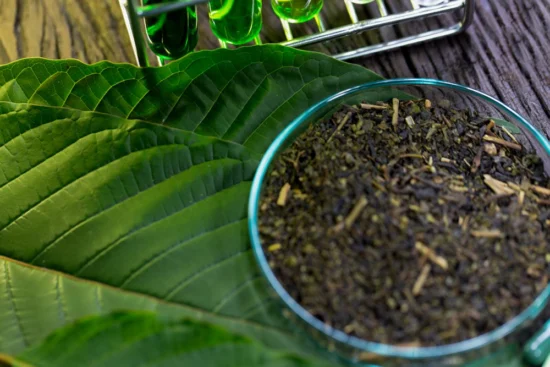
What is Trainwreck Kratom? Updated September 2025 By: The Kratom Spot Team SUMMARY: Trainwreck Kratom is a proprietary blend marketed as a “full spectrum” kratom product, but its vague formulation and exaggerated claims make it unreliable and potentially risky. This article explains why Trainwreck may not live up to the hype, highlights safer alternatives, and…
 April 12, 2025
April 12, 2025

How to Prepare Kratom as a Tea, Powder, Capsules, and More Updated September 2025 By: The Kratom Spot Team SUMMARY: There are many ways to prepare kratom, from taking raw powder or capsules, to preparing kratom in teas, lattes, and creative recipes. This guide explains the basics of choosing strains, dosing safely, proper storage, and…
 March 26, 2025
March 26, 2025
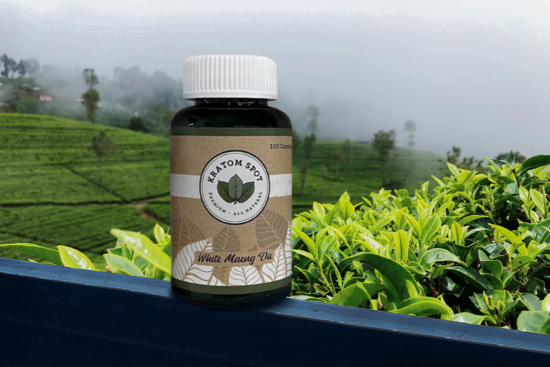
The Ultimate Guide to White Kratom Updated September 2025 By: The Kratom Spot Team SUMMARY: White vein kratom is known for its upbeat, focus-enhancing effects, making it a popular natural alternative to caffeine. This guide explains the science behind white strains, their uses, potential side effects, preparation methods, and how to find high-quality white kratom…
 March 14, 2025
March 14, 2025

Blog Title Updated October 2025 By: The Kratom Spot Team SUMMARY: The American Kratom Association (AKA) is a nationwide advocacy organization working to protect kratom users in the United States. They advocate for legal protections, establish quality standards through GMP certification, and promote safe, transparent access to kratom nationwide. KEY TAKEAWAYS: The American Kratom Association…
 March 10, 2025
March 10, 2025

The Ultimate Guide to Red Kratom Updated September 2025 By: The Kratom Spot Team SUMMARY: Red vein kratom is a potent strain valued for its deep grounding effects, often used to unwind or create a more tranquil mood. This guide explains what makes red kratom unique, its common uses, potential side effects, how to take…
 February 26, 2025
February 26, 2025

The Key Difference Between Kratom Strains Updated September 2025 By: The Kratom Spot Team SUMMARY: Kratom strains are typically categorized as red vein, green vein, or white vein. Each strain offers different effects based on the age of the leaf at time of harvest, which affects the natural alkaloid balance. This guide explains the differences…
 February 23, 2025
February 23, 2025
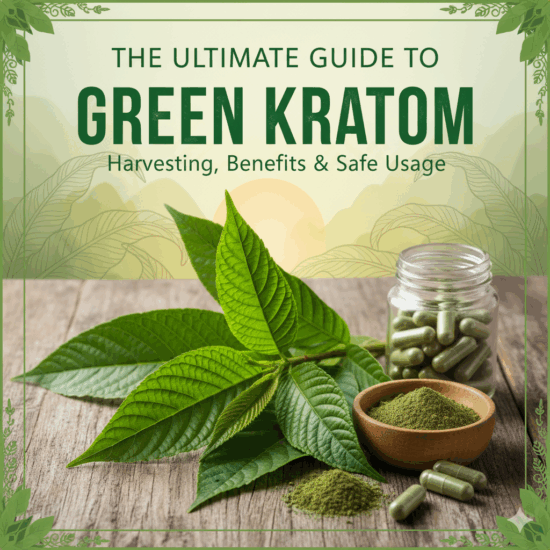
The Ultimate Guide to Green Kratom Updated September 2025 By: The Kratom Spot Team SUMMARY: Green vein kratom is a balanced “middle strain” that combines the vibrant qualities of white vein strains and the grounding effects of red vein strains. This guide explains what makes green kratom unique, its uses, side effects, preparation methods, and…
 February 21, 2025
February 21, 2025
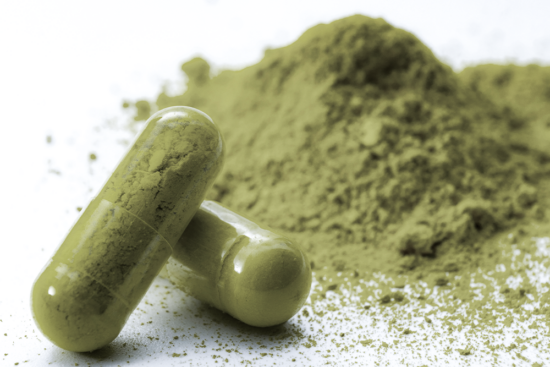
Capsules vs. Powder: Which Kratom Form is Right for You? Updated September 2025 By: The Kratom Spot Team SUMMARY: Kratom powder and capsules both deliver the same benefits, but how you take them is different. Powder offers versatility, faster effects, and lower cost, while capsules provide convenience, discretion, and taste-free use. This guide explains the…
 January 31, 2025
January 31, 2025

A Guide To Maeng Da Kratom: What To Know Updated September 2025 By: The Kratom Spot Team SUMMARY: Maeng Da Kratom is a powerful strain originally cultivated in Thailand for higher potency, offering elevated levels of kratom’s key alkaloids. This guide explains its origins, harvesting and preparation methods, different Maeng Da varieties, and why sourcing…
 October 10, 2024
October 10, 2024

Is kratom legal in your area? It’s an important question! The short answer? Probably. Kratom is legal throughout the vast majority of the US, with no pending laws to list it as a controlled substance or otherwise ban it. While this natural supplement remains legal in most areas of the US, kratom is banned in…
 September 6, 2024
September 6, 2024

Joe Rogan is the arguable king of podcasts. In “The Joe Rogan Experience”, Rogan’s focus is wide-ranging and entertaining, often delving into a wide range of topics, from the mundane to the controversial. One particularly intriguing subject has been his exploration of kratom, the natural botanical we know and love. With his candid and often…
 July 22, 2024
July 22, 2024

When Summer comes around, it’s time to relax, enjoy life and all it has to offer. And there’s no more refreshing, Summery drink than a glass of ice cold, delicious lemonade! But for the kratom lover, there’s an even more delightful option: kratom lemonade. This tasty beverage brings out all the best from your kratom…
 May 3, 2024
May 3, 2024

Kratom is a powerful tool for health, wellness, and getting the most out of users’ lives. But unfortunately, there are many disreputable vendors out there looking to take advantage of the kratom community. Because these vendors sometimes sell inferior, misleading, or even dangerously adulterated products under the “kratom” label, it’s important that reputable vendors like…
 April 5, 2024
April 5, 2024
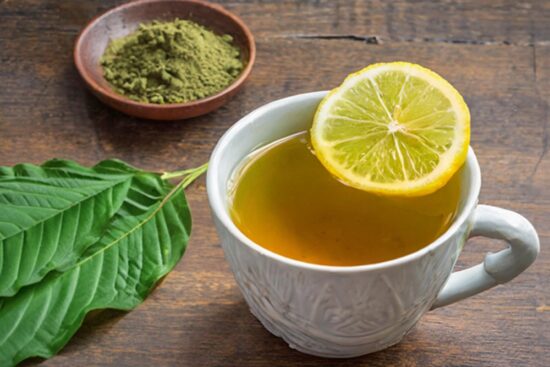
Kratom extracts are hugely popular, extra potent, and the preferred form of kratom for many experienced users. What many don’t realize is just how easy it is to learn how to make kratom extract at home! In this blog, we’ll walk you through how to make kratom extracts at home using two simple methods: a…
 February 12, 2024
February 12, 2024

Different users have different thoughts about how kratom interacts with food. Some say to take kratom on an empty stomach, and some users suggest that it should always be taken when you’re full! Even among the most dedicated kratom users, there’s debate about how long after eating to take kratom. It’s simply not something with…
 January 5, 2024
January 5, 2024

Step into the kitchen for a unique baking experience that merges the benefits of kratom with the delicious home-cooked goodness of your favorite cookies. In this blog, we’ll guide you through the process of creating Kratom Cookies – a delightful blend of flavor and well-being. Whether you’re a seasoned kratom enthusiast or a casual baker,…
 December 28, 2023
December 28, 2023
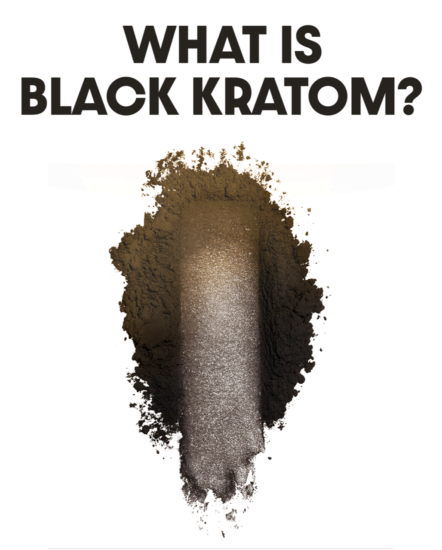
There are a lot of kratom strains out there. And every once in a while, a new one pops up that has even experienced users scratching their heads trying to figure out just what the thing is. Case in point: Black Vein Kratom Black Vein Kratom is certainly one of the rarer strains. Few vendors…
 December 8, 2023
December 8, 2023
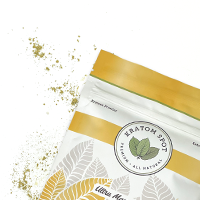
There’s a lot to know about the wide world of kratom — not least of which is what all the different strains mean and how they compare to each other. So Indo vs. Malay kratom: how to these two wildly popular strains compare? What makes them distinct? And which should you choose for your needs?…
 November 9, 2023
November 9, 2023

We all know what kratom can do for you — but how does it fit into your diet? Does kratom have calories? Vitamins? What is the nutritional value of kratom? And does kratom have nutritional benefits to complement its unique effects? This blog examines all these questions and more, once and for all, making sure…
 October 19, 2023
October 19, 2023

























